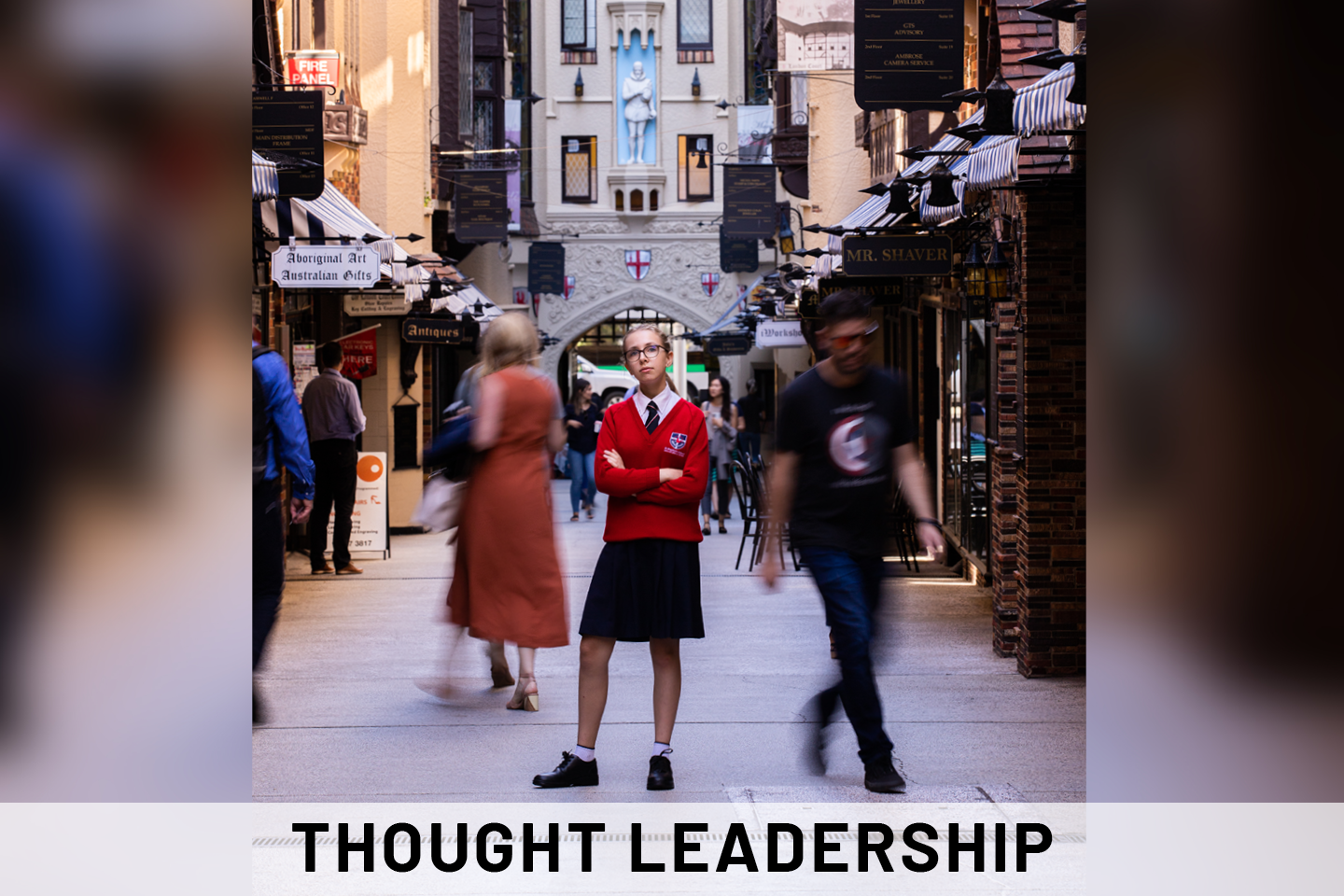

Teaching students to have agile minds, to learn skills that can be transferred from subject to subject, between multiple learning institutions and, ultimately from one workplace to the next, are some of the key challenges 21st Century educators face.
To quote the often-used cliché, we are tasked with ‘future-proofing’ students into a world that is constantly changing, where the news cycle is twenty-four seven and social media is often the first point of reference for many. This landscape requires skills such as problem-solving, perseverance, flexibility in thinking, teamwork and leadership skills to form part of our curriculum goals.
The teaching of literacy, numeracy and digital capability is coupled with opportunities for students to develop understanding and efficiency in these transferable skills, employing them across learning areas as they progress through school. The key is not just learning a skill but being able to adapt its use depending on the situation. This ability for discernment is important for students as they progress through their school years and into further education, training or the workforce.
Gaining confidence in asking questions is also pivotal for today’s students. Gone are the days where the teacher was the ‘font of all knowledge’, the only source of information and rote learning was the norm. Students are now encouraged to challenge ideas, to gain more insight on a topic by questioning what they may not understand or offering alternative solutions to a problem.
Industry expectations of students entering the workforce have evolved over the years and employers are looking to schools to teach students transferable skills, flexibility and adaptability in preparation for work in a VUCA (volatile, uncertain, complex and ambiguous) world.
A world where digital disruption of industries is challenging the nature of traditional career pathways more than ever before. Where some careers do not yet exist, and others will end, either immediately or over time, as technological advancements continue to impact the way industries operate.
This disruption and uncertainty should not create a sense of concern, rather it provides schools with opportunities to recalibrate teaching and learning for this Century. We provide students with real-life opportunities to learn about career challenges, developments and growth from multiple stakeholders including school teachers, tertiary educators, career advisors and industry experts.
The classroom environment and the connection between students and teachers is one of the key elements in building students’ understanding and expertise in 21st Century skills. Students who feel connected to peers and supported by teachers gain confidence to ask questions, to review a problem or puzzle from different perspectives without the fear of ‘failing’. We see deep learning taking place in the midst of classroom discussions and debates. Students question how and why things are as they are. They get a chance to explore possible solutions to problems and debate contentious issues to strengthen their understanding.
These classroom conversations are also an opportunity for students to learn to connect with and value people with different viewpoints, opinions and experiences. Giving each of them a richer educational experience and preparing them for life beyond the classroom.
St Stephen’s School has fostered partnerships with alumni, community and industry representatives to connect students with the world of work through vocational pathways, practical placements and special career events and workshops where students can explore the day-to-day dynamic of work with real life employees. Career counselling also forms a key part of the timetable for our senior students where our advisors help students to navigate the best study pathway to reach their individual goals.
Today’s students span generations. Generation Z (1997-2012) and Generation Alpha (2012-2024) are students who have been the first to have grown up with digital products and devices immersed in their lives. They have witnessed global upheaval including acts of terrorism, natural disasters, the Global Financial Crisis and COVID-19. For Generation Z these experiences have shaped them into people unfazed with constant change, professionally mobile and with a propensity to switch jobs. Research shows workers in this age group are three times more likely to change jobs than Baby Boomers.
McCrindle Research’s ‘The Future of Education 2020’ report confirmed the effectiveness of the overarching approach to teaching students key transferrable skills in the classroom. Researchers found 92 per cent of parents and 95 per cent of educators surveyed believed students of today were equipped to thrive in the workplace over the next 10 years.
Similarly, when asked what educational outcome is more important for children today, almost half (49 per cent) of parents surveyed rated the ability to adapt to a changing environment and 51 per cent placed more value on a secure pathway to employment.
Educators answered the same question with a stronger swing (72 per cent) towards ability to change to a changing environment. The variance of importance between parents and educators in the area, while significant, is not a concerning one as inevitably, being able to adapt to changing environments will often lead to a more secure pathway to employment.
Considering the next decade will bring rapid changes to many workplace environments, it is reassuring to know our students will be confident to navigate their paths – wherever they may lead.












